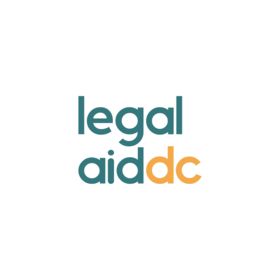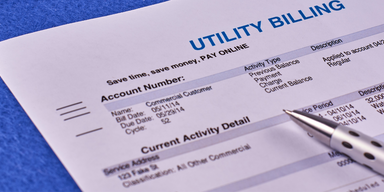
Legal Aid DC today announced the relaunch of the Housing Right to Counsel Project, together with a coalition of legal services providers and law firms, to provide free legal services for low-income residents with housing subsidies facing eviction across the District so residents can maintain safe, affordable housing.
The Housing Right to Counsel Project is a joint initiative run by Legal Aid DC, Bread for the City, Legal Counsel for the Elderly, Neighborhood Legal Services Program, Rising for Justice, and the DC Bar Pro Bono Center, with support from the DC Access to Justice Commission and the DC Bar Foundation. The Project specifically ensures low-income residents can get legal support by pairing legal services providers with one of 19 participating law firms across the District, as well as pro bono programs of the Office of the Attorney General for the District of Columbia and the federal government, to provide free counsel to residents facing eviction. Clients of the project are guaranteed free lawyers, enabling access to tenant protections to which they are entitled, and increasing their ability to stay in their homes.
The relaunch of the Housing Right to Counsel Project coincides with a housing affordability crisis in the District that disproportionally impacts low-income Black and Brown residents. Housing displacement is currently at record levels, resulting in increased evictions and skyrocketing demand for legal services. Scheduled evictions in DC increased 250% between January 2022 and January 2023, according to data from the U.S. Marshals Service. But fewer than 15% of tenants at eviction hearings have legal representation, while 95% of landlords have legal representation.
“Everyone deserves access to safe, affordable housing, and no one should be forced to defend themselves in court without a lawyer present – especially when the effects of eviction are severe,” said Vikram Swaruup, Executive Director of Legal Aid DC. “Compared to a year ago, Legal Aid has seen a 50% increase in calls for eviction cases, with low-income Black and Brown residents bearing the brunt of the District’s housing affordability crisis. Legal services providers across the District have drastically increased our efforts to help low-income residents, but we know that there is a large unmet need. That’s why we are reinvigorating and strengthening this Project that uses collective action – from legal services providers to law firms – to support our community, enable residents to access legal services to help assert their rights, and help ensure that more District residents can stay in their homes.”
“The harmful ripple effects of eviction are devasting and can cascade into other challenges, causing residents to lose their possessions, their jobs, access to their children’s schools, and their community and support networks in their neighborhoods,” said Nancy Drane, Executive Director of the District of Columbia Access to Justice Commission. “The impacts are particularly severe for residents who receive housing subsidies – one of the few tools in place to help address the affordability crisis. If residents using subsidies are evicted, it becomes functionally impossible for them to access a subsidy again, forcing them into homelessness. But this Project will work to change that trajectory for many residents by providing free attorneys who can help tenants assert their rights and access the tools to stay in their homes.”
“Our community is in the midst of a housing crisis, with far too many DC residents struggling to find safe, affordable homes,” said DC Attorney General Brian L. Schwalb. “Even when residents do find housing, we know that many struggle to keep it—and that eviction can have harmful and long-lasting effects, particularly on children and families. Every day, the Office of the Attorney General works to make sure tenants are safe in their homes and landlords live up to their legal obligations—but our work represents just one part of the comprehensive effort needed to address this crisis. Relaunching the Housing Right to Counsel Project is an important step forward, and we are proud that through our pro bono program, we are joining the coalition of legal services and law firms that are part of this project.”
Between 2016 and 2019, more than 300 District residents received a lawyer through the Housing Right to Counsel Project. The Project proved successful. Compared to a control group, tenants who were contacted and helped through the Project were 16 times more likely to challenge an eviction and eight times less likely to face an eviction judgment.
During the pandemic, the District’s eviction moratorium prevented eviction filings, and the immediate need for the Project diminished. After the end of that moratorium, combined with other factors, there is now an even greater need for the relaunch of the Housing Right to Counsel Project. Specifically, tens of thousands of low-income residents spend at least half of their income on rent, the D.C. Housing Authority’s waitlists to access housing vouchers and public housing have been closed since 2013, and, in 2023, the District exhausted the initial $43 million allocated for emergency rental assistance in less than six months – all making it more challenging for low-income residents to afford homes.
Latricia Jones, who was at risk of being evicted from the subsidized apartment where she had lived for more than 10 years, is one of the many clients who has been served through the Housing Right to Counsel Project. Steptoe attorneys John O’Connor and Johanna Dennehy were prepared to defend Ms. Jones who was being sued for unpaid rent that she had, in fact, paid. But, after discovery, the landlord not only agreed to dismiss the case, but also forgive past debt and make much-needed repairs in Ms. Jones’s apartment. Ms. Jones, who came to Legal Aid under threat of eviction, wound up with an improved home.
“I think about them all the time all these years later. John and Johanna made me feel comfortable,” said Ms. Jones. “They made me know it was going to be okay. They made me feel like I was their only client. That case was my first time in landlord tenant court. Without them, I would not have known what legal steps to take by myself. It wasn't just me who would have been harmed if things didn’t go well in that case. I have a family. My lawyers fought for me every step of the way. Now in my job, whenever I hear someone is having legal issues, I want to refer them to Legal Aid so they can get the same help I got. I had some great attorneys on my side.”
Pro bono housing counsel is a cost-effective intervention that helps keep residents and families in their homes. Every dollar invested in civil legal services results in $5 to $9 that would otherwise be needed to address the downstream consequences of a legal crisis like an eviction. The District is the only housing right to counsel program in the country that is primarily based on pro bono support for law firms.
The Project focuses on providing lawyers to tenants with subsidies facing eviction. To restart the program, legal services providers will send letters guaranteeing counsel to one out of every six tenants with subsidies against whom a publicly available eviction case has been filed and scheduled for November and December 2023. Tenants who are selected for the program are guaranteed a lawyer as long as they connect with one of the participating legal services providers directly or by calling the Landlord Tenant Legal Assistance Network (202-780-2575), a joint hotline run by the Pro Bono Center with staffing from all six providers.
Law firms participating in the Project include Alston & Bird, ArentFox Schiff, Arnold & Porter, Beveridge & Diamond, Blank Rome, Cleary Gottlieb, Covington, Crowell, Dechert, DLA Piper, Hogan Lovells, Hunton Andrews Kurth, Jenner & Block, Jones Day, Latham & Watkins, Morgan Lewis, Sidley Austin, Skadden, and Steptoe.
Click here to learn more about the Project. Click here to find statements from many of the organizations and law firms participating in the Housing Right to Counsel Project.
About Legal Aid
Legal Aid was formed in 1932 and is the oldest and largest general civil legal services program in the District of Columbia.
Over the last 90 years, Legal Aid staff and volunteers have been making justice real – in individual and systemic ways – for tens of thousands of persons living in poverty in the District. The largest part of our work is comprised of individual representation in housing, domestic violence/family, public benefits, and consumer law, although we also work on immigration law matters and help individuals with the collateral consequences of their involvement with the criminal legal system. From the experiences of our clients, we identify opportunities for law reform, public policy advocacy, and systemic reform litigation.
For more information about Legal Aid please visit our website, www.legalaiddc.org.
###




